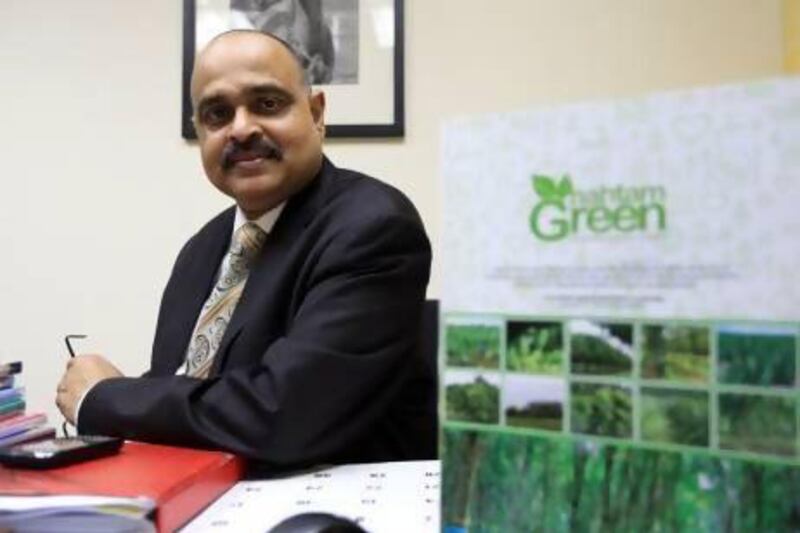ABU DHABI // A social responsibility company is planning to set up a sustainable organic farming system in Ghana.
Nahtam will acquire 4,000 acres of land in the capital city of Accra, which will produce food while offsetting carbon production.
"Carbon footprint is a global issue and the simplest and easiest method to offset carbon is to plant as many trees as you can," said George Itty, chief executive of Nahtam.
"Since we are based in Abu Dhabi, planting trees in a desert like the UAE can be very expensive, so you can plant them in Ghana or anywhere else in the world. As long as the trees are there, we are offsetting carbon footprint."
The project will employ 2,000 Ghanaians to work on the land, where 36 villages have already been set up. Crops will include bananas, palm oil, avocados, mangoes and pineapples. The products will be sold locally and exported to countries including the UAE.
"We will also have exotic trees like teak and rubber plantations," Mr Itty said. "Teak is a long-term investment, it takes many years to get the result out of it but we're going for tissue culture, so it won't be that long. Rubber plantations are also something that worldwide investors will get a return on."
Getting the land took a year and is expected to be finalised next month. The aim of the project is to make it 100 per cent sustainable.
"We won't use chemicals," Mr Itty said. "Even the power will be from solar and wind so it will be sustainable."
Work on the land will start in six months and the trees are expected to mature in two to three years.
Food production is anticipated to begin as early as next summer.
"We chose Ghana because it has abundant rainfall and enough sunlight, and trees need sufficient sunlight and water," Mr Itty said. "We have land availability, which is not very expensive, the weather is excellent and we have healthy manpower there who need jobs."
The amount of carbon reduction will depend on each tree.
"Once we decide on the species we will plant, we will be able to find out how much we can offset," Mr Itty said. "But it'll be a huge number."
Experts believe more people are starting to acknowledge the importance of offsetting carbon.
"Although the European carbon market has pretty much collapsed, people recognise that stopping deforestation and replanting forests is very important in tackling climate change in the longer term," said Robin Mills, head of consulting at Manaar Energy in Dubai.
"About 20 per cent of greenhouse gas emissions are from land clearance from deforestation so, although it might not be important for companies individually, it's important from a global point of view."
Mr Itty will invite investors from the UAE to take part in the project in three months.
Nahtam's interests go beyond the environment - the company has also embarked on a medical programme in India.
"We spoke to retired doctors in villages near Kerala and Bombay to find out how many would be available to volunteer to have out-patients," he said. "We want to have clinics and doctors checking, giving medicine and basic health guidance, as well as offering them to big hospitals if there is something chronic."
Although the project is still in its early stages, it is expected to start in a year. So far, more than 10 doctors have been consulted, a few of whom have expressed interest.
"It will take time to motivate and put them together," Mr Itty said.





